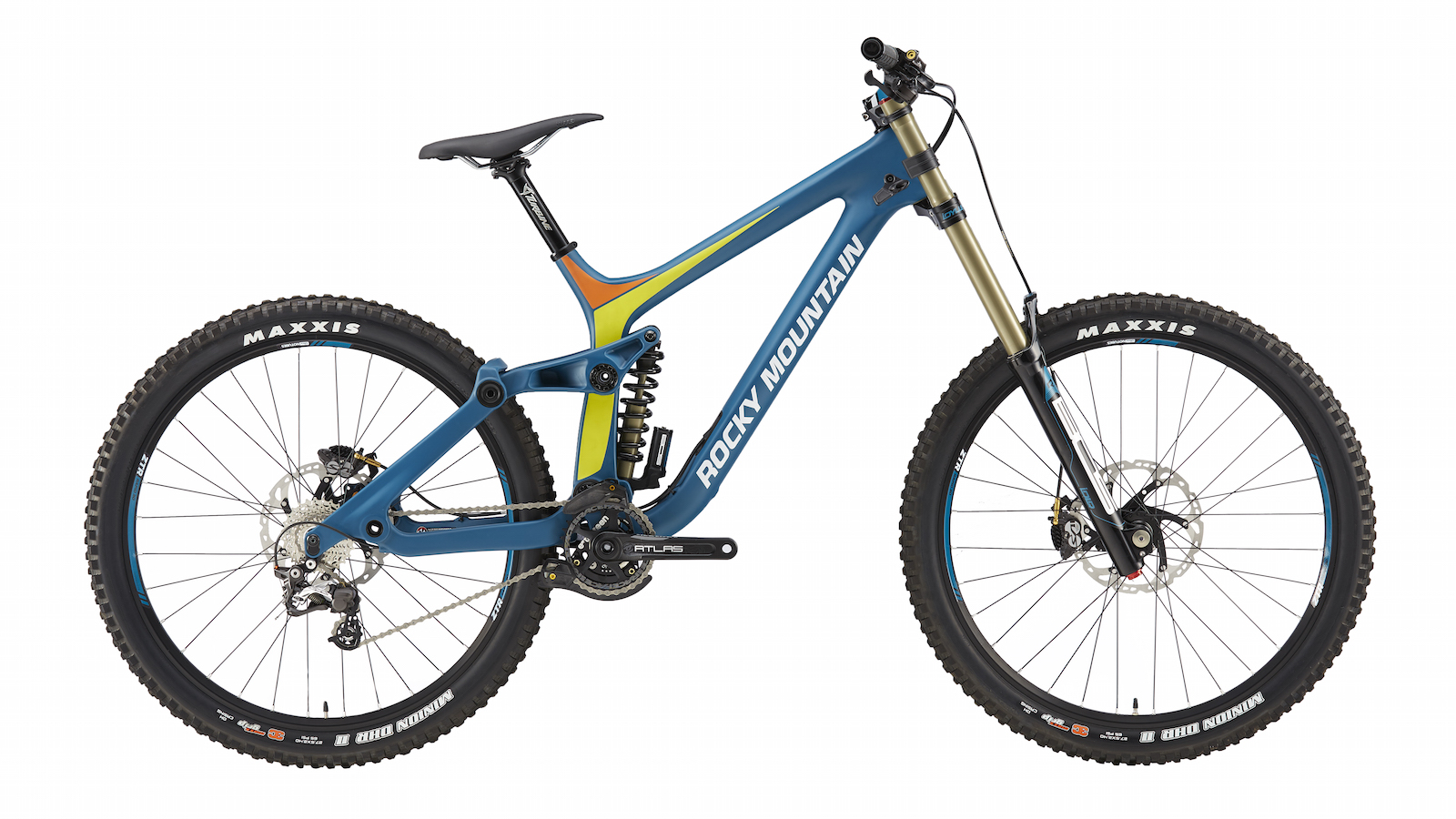Introducing the 2016 Rocky Mountain Maiden
[ad3]
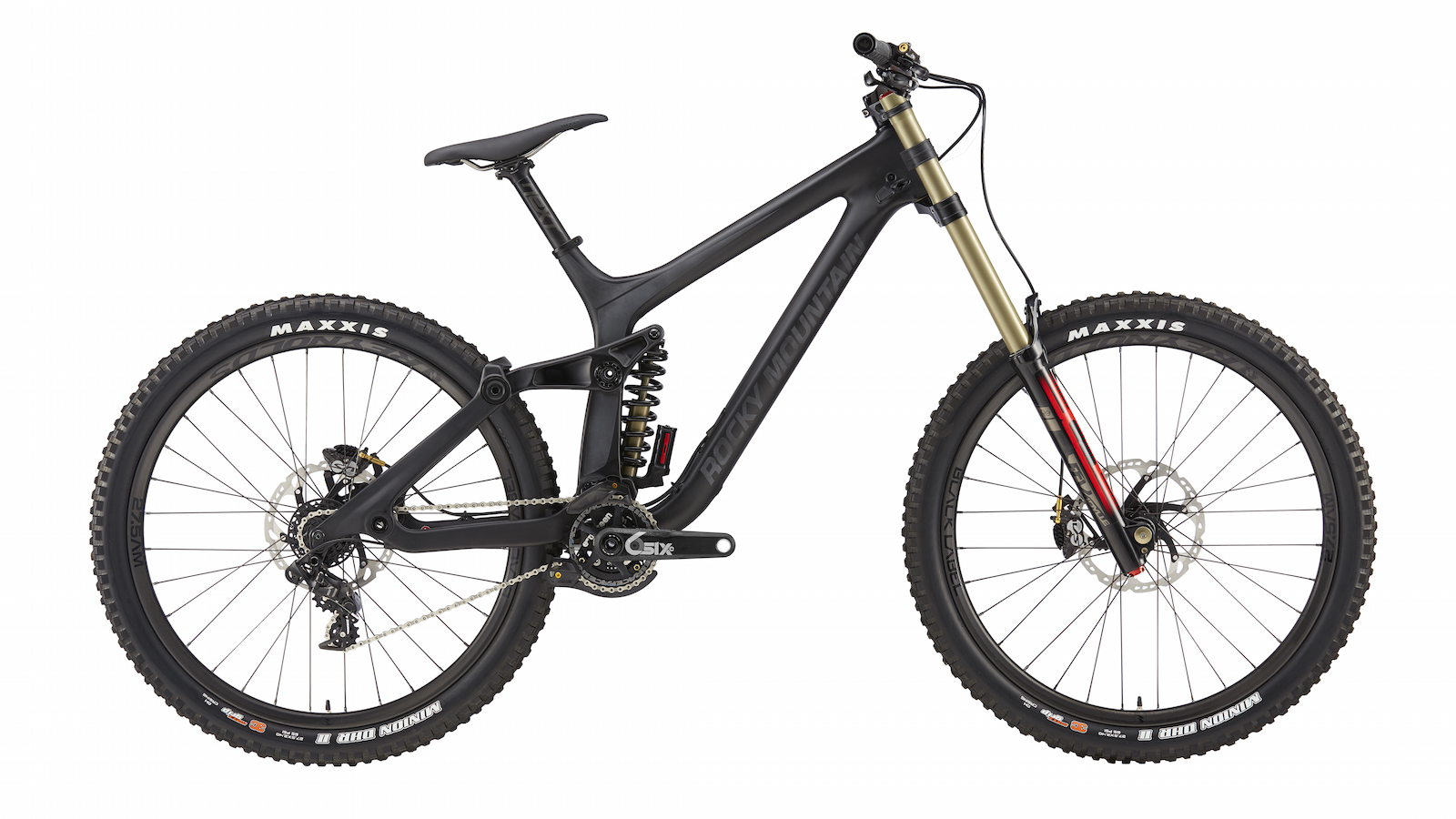
After nearly four years of development, we’re proud to launch the Maiden. With the freedom to design on an extended schedule, it represents the cutting edge of our technology. Its all-carbon frame was designed from the ground up to perform at the highest levels of World Cup racing, bike park blasting, and big mountain freeriding.
Maiden Voyage from Rocky Mountain Bicycles on Vimeo.
Intended use: Downhill
Travel: 200mm (F), 200mm (R)
Wheel size: 26”/27.5”
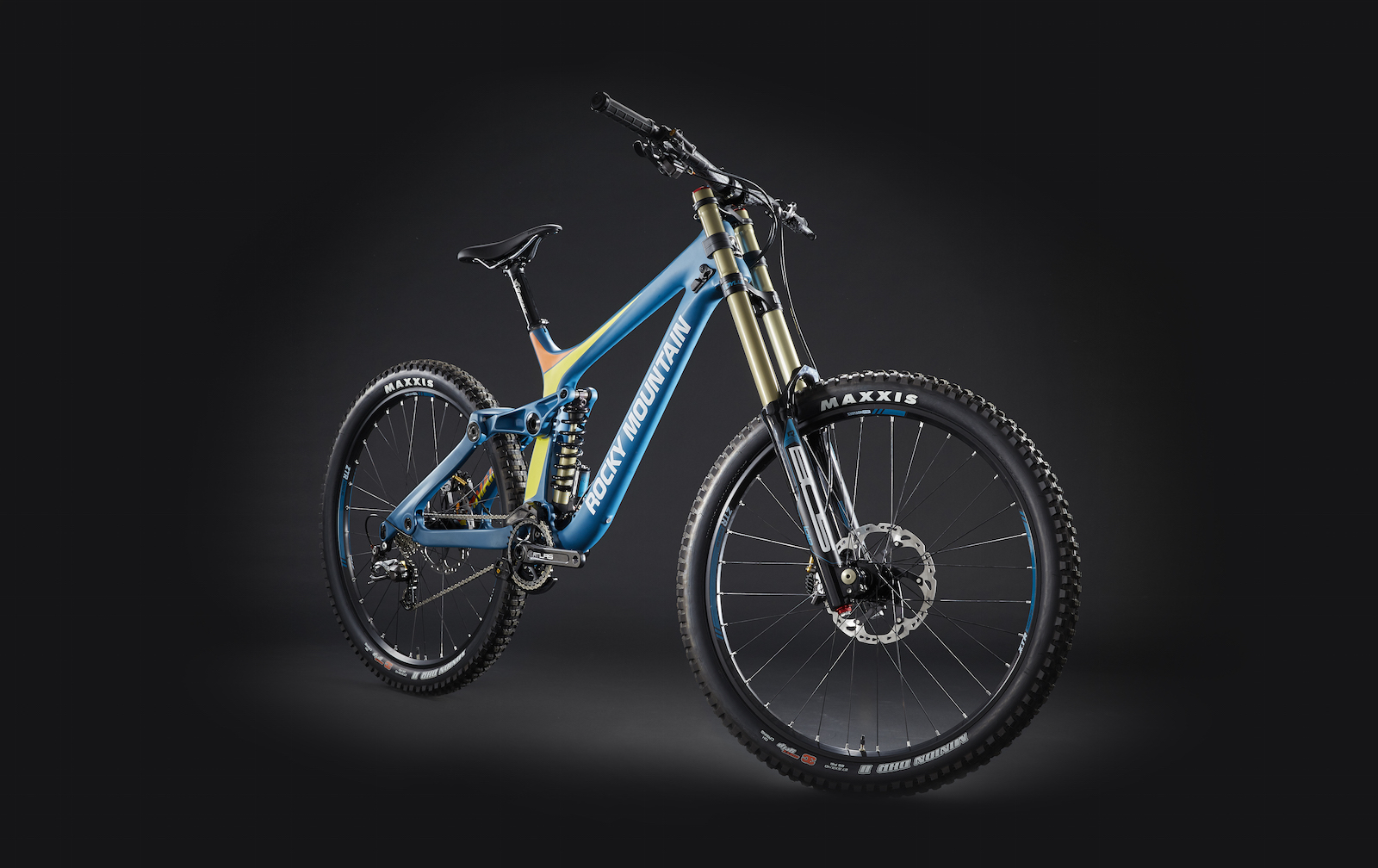
Details
• Full carbon frame, link, chainstay, and seatstay
• Optimized for 26” or 27.5” wheels with Equalized geometry
• Four bar Smoothlink suspension
• Pipelock collet axles lock into the frame for stiffness
• Oversized Enduro MAX type bearings for longer bearing life and higher load capacity
• Integrated frame protection: molded downtube guard, shock fender, chainstay protector, and bolt-in fork bumpers
• Di2 electronics compatible with internal stealth battery port
• Internal cable and brake routing
• PressFit BB107 bottom bracket, drop-in IS42|52 headset, 157mm axle spacing, ISCG-05 tabs
• Sizing: S/M/L/XL
Suspension
Rate Curve
We tested a wide range of suspension systems during the Maiden’s development. Many four-bar downhill bikes have very low rising rates (<20% slope). They have good support at sag, but require harsh-feeling higher spring rates or progressive air shocks to avoid bottoming under advanced riders. On the other end of the spectrum, some virtual pivot bikes have very high rising rates (>70% slope). They have great small-bump sensitivity and don’t bottom out easily, but they wallow and lack support at sag.
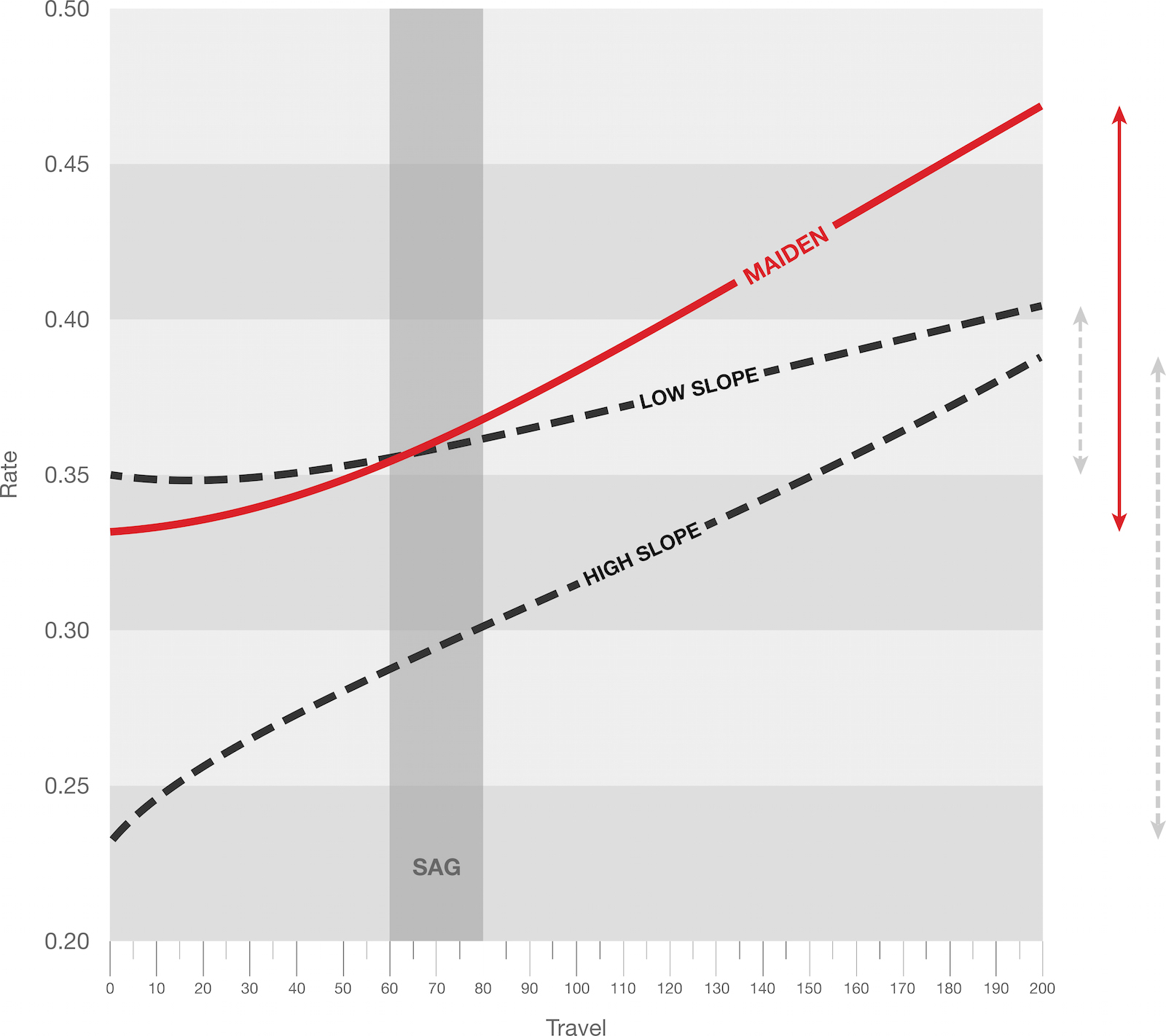
The Maiden’s rate curve sits between those two extremes with a 40% slope. It starts low enough for small-bump suppleness, ends high enough to avoid bottoming, has good rider support at sag, and allows the use of a lighter coil spring. We also tuned the progression to rise at a near-constant rate for more predictable response and more effective shock adjustments. The result is lively, supple suspension performance. It eats up chatter, pops off lips predictably, and reacts well when pushed aggressively.
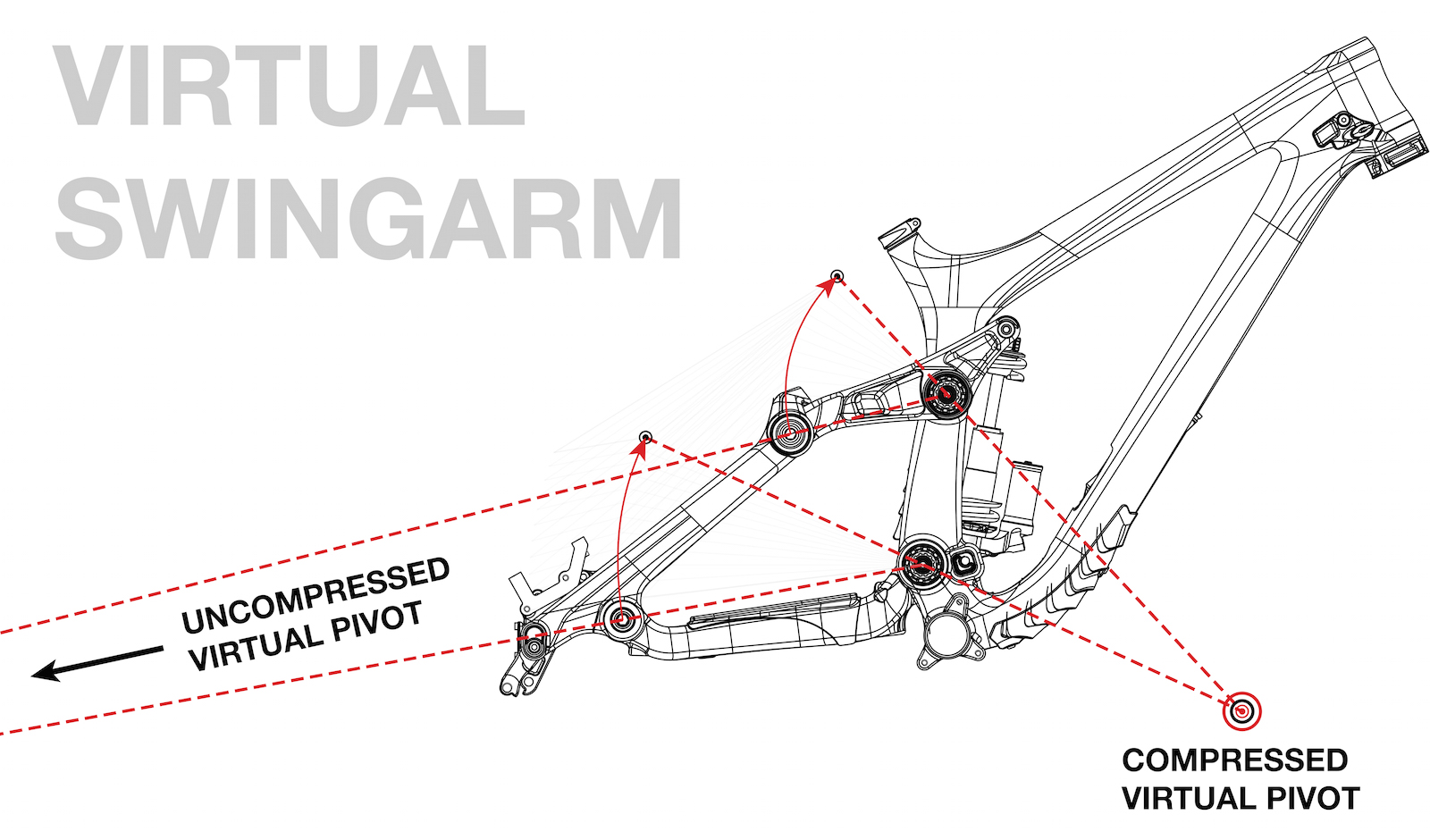
Pedaling & Chainstay Growth
The Maiden puts power to the ground efficiently, thanks to a high level of anti-squat (140% with 27.5 wheels or 100% with 26” wheels) and well- supported suspension.
Chainstay growth is minimal (26mm with 27.5” wheels or 21mm with 26” wheels), and we pushed that growth deeper into the travel to further improve small bump performance while achieving the axle trajectory we were looking for.
Braking Characteristics
Our engineering team spent a lot of time improving traction and control under braking, because more efficient braking makes you faster. Our patent- pending Autonomous braking resists both compression and extension under braking—remaining active through the majority of rear wheel travel and allowing the bike to react to ground forces rather than braking forces.
The Maiden achieves its braking characteristics by balancing anti-rise (35%), caliper counter-rotation, and instantaneous inertial brake transfer values. Our virtual swingarm begins far behind the bike, lengthens backwards through infinity as the bike compresses, and ends in front of the bike. This long virtual swingarm is the key to avoiding the “grip-slip” phenomenon displayed by other bikes, especially single pivot designs.
The effect is striking: there’s more travel available to soak up terrain under braking, there’s more traction, and there’s less hand-fatigue. Slow is smooth, smooth is fast.
Geometry
We worked closely with our gravity athletes throughout the bike’s design and testing phases, and drew on Thomas Vanderham’s personal settings for the bike’s low centre of gravity, balanced reach, and aggressive geometry.
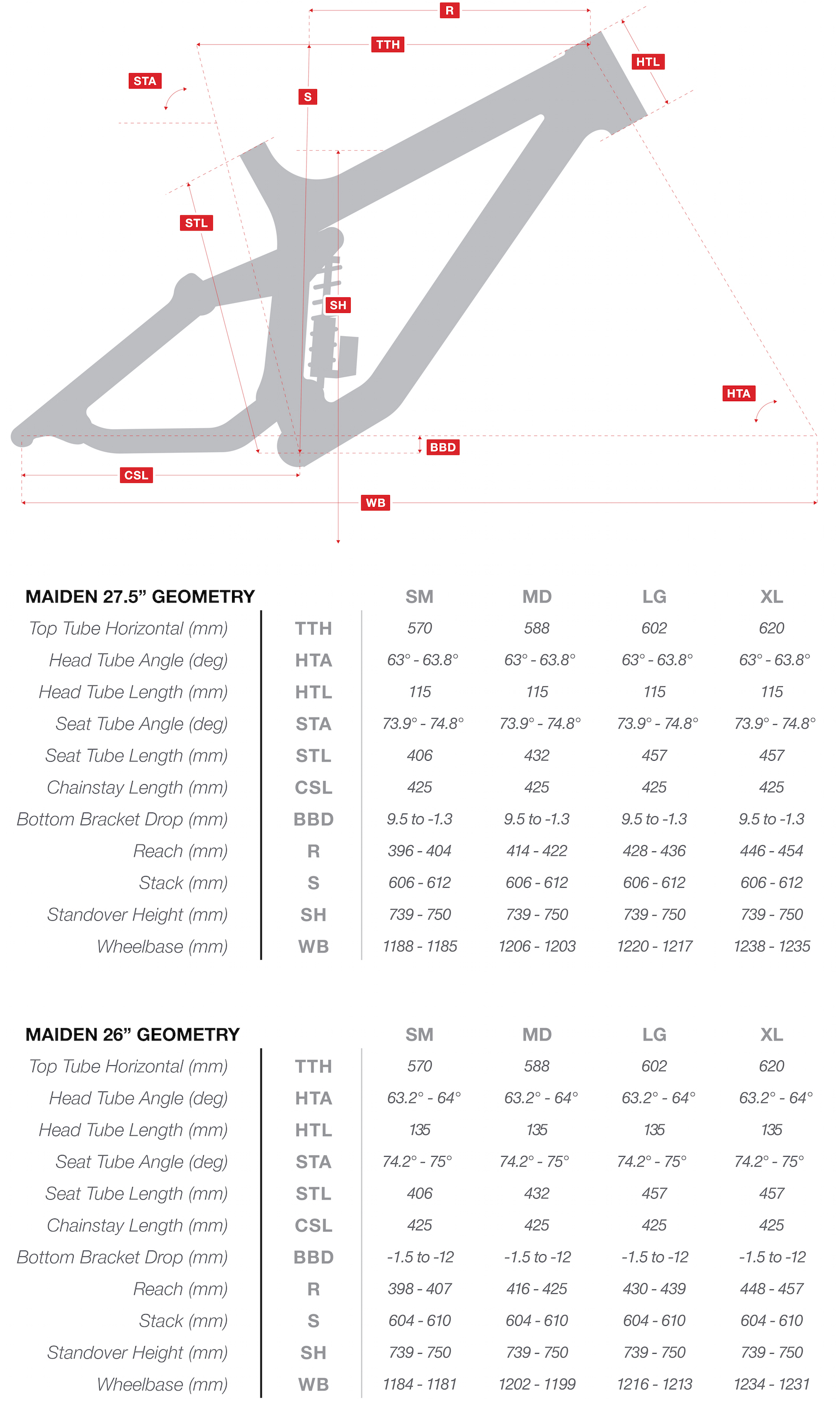
Adjustability & Adaptability
There are advantages to both 26” and 27.5” wheels in DH applications. Rather than just putting larger wheels into an existing design and compromising steering dynamics, we created the Equalized Wheel Concept. By using a headtube spacer in conjunction with a second rear axle position, this system allows riders to choose their wheel size while maintaining optimal BB height and fork trail.
We tuned our new RIDE-4 system to adjust geometry while affecting the suspension curve as little as possible. This allows for subtle track-to-track geometry changes in 1/4° headtube angle increments with minimal effect on your shock tune.
Technologies
Smoothwall carbon uses one of the world’s most sophisticated carbon processes to build frames with industry leading stiffness-to-weight, ride quality, and durability. By using rigid internal molds, we are able to perfect the shape of the internal features and eliminate excess materials. We use different types of carbon in specific frame areas to maximize stiffness and impact resistance while minimizing overall weight.
Ride-4 Adjustability
Our new RIDE-4 system uses a single chip insert to adjust the geometry on bikes that require more subtle changes. This allows for more precise adjustments and more isolated shock-tuning.
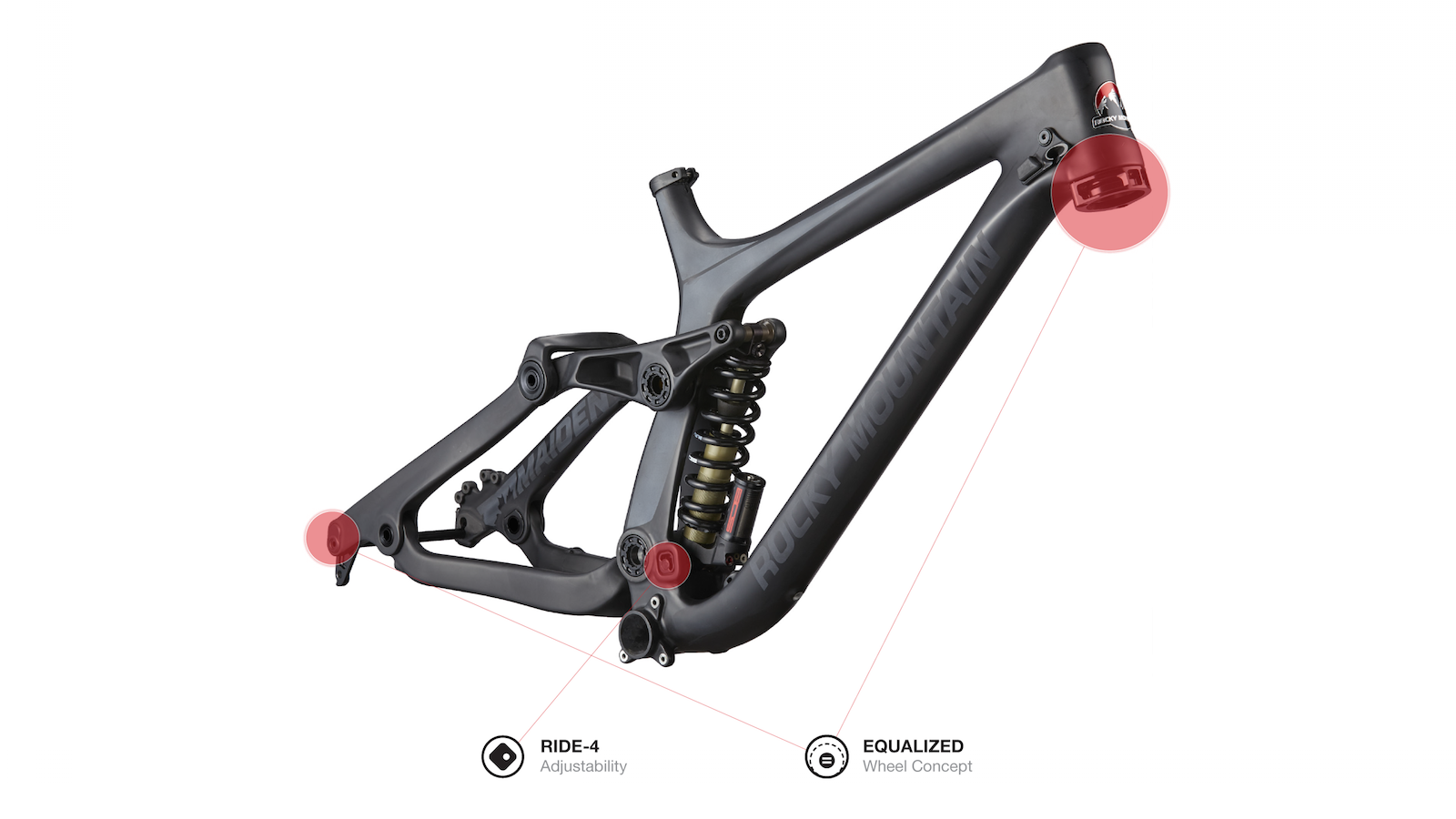
Smoothlink Suspension
The hallmark of Smoothlink suspension is our ability to fine tune its characteristics for the intended use of each bike we design. There is no one-kind-fits-all to suspension design, and we work to hone variables like braking, anti-squat, small-bump sensitivity, and end-stroke progression across a wide range of applications.
Autonomous Braking
Autonomous braking makes you go faster by slowing you down more effectively. Other suspension systems cause a “grip-slip” phenomenon and lose traction under braking. Our system provides more control by remaining neutral and active through the majority of travel. By balancing anti-rise, caliper counter-rotation, and instantaneous inertial brake transfer values, Autonomous braking keeps more travel available to soak up rough terrain.
Pipelock Collet System
The Pipelock collet system expands radially and locks into the frame, creating the widest and most rigid pivot stance possible. Using Pipelock collets allows us to lower our front triangle pivot-weights while maximizing lateral stiffness.
BOS Suspension
The BOS name has deep roots at the highest levels of racing. From the French domination of the World Cup circuit in the ‘90s, to the upper echelons of WRC and Dakar racing, they have a history of victory. Olivier Bossard’s iconic company re-entered the mountain bike market in 2012, and has emerged as a major player with elite-level suspension performance.
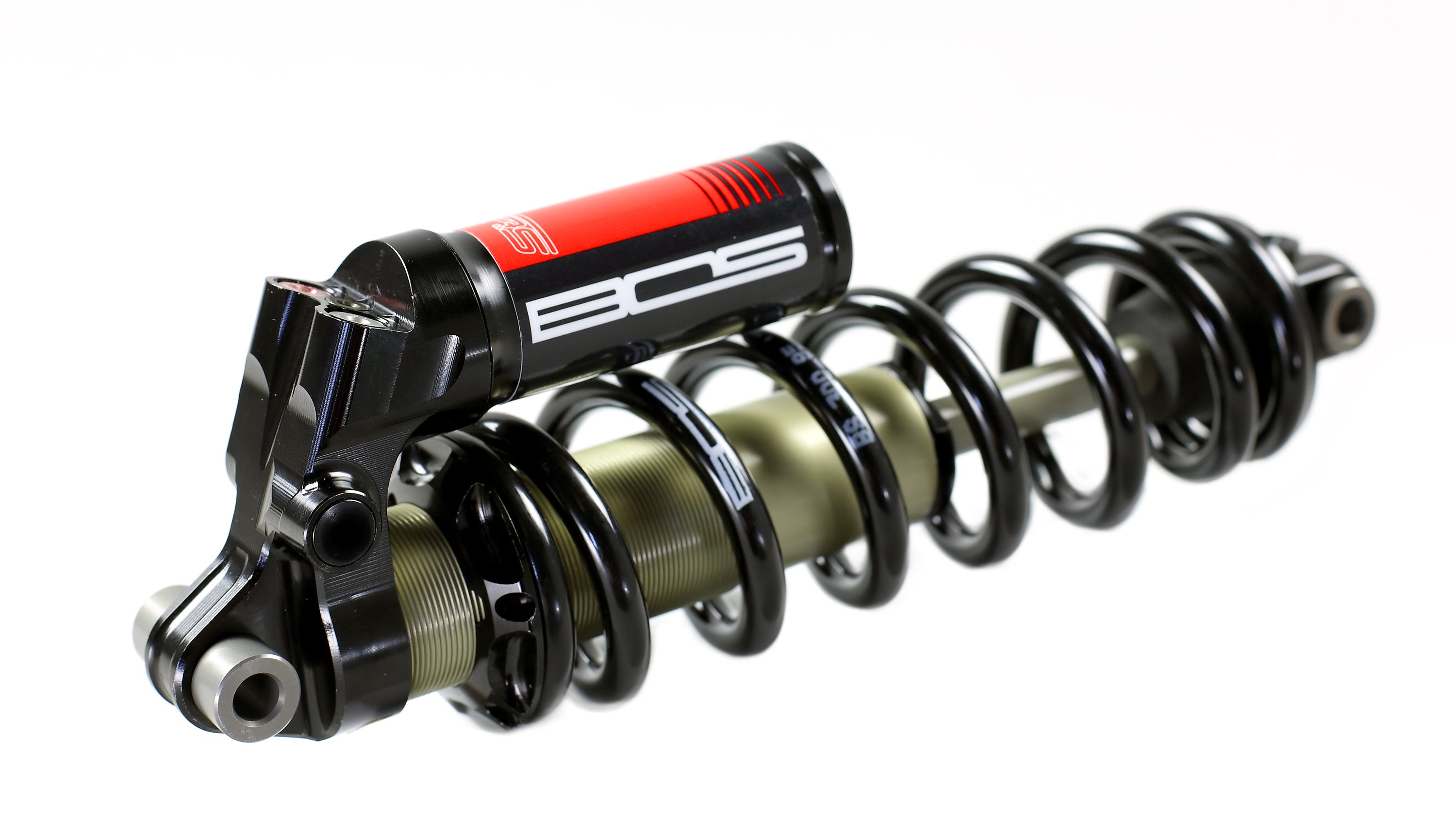
We chose to work with BOS on the Maiden for several reasons. Their open-bath dampers feel amazing, their tooled adjustments are effective, and their manufacturing is precise.
Availability: In stores worldwide late October
Pricing (USA):
Unlimited — $10 499
World Cup — $6 999
Pro — $5 499
Park — $4 499
Frame Only — $3 999
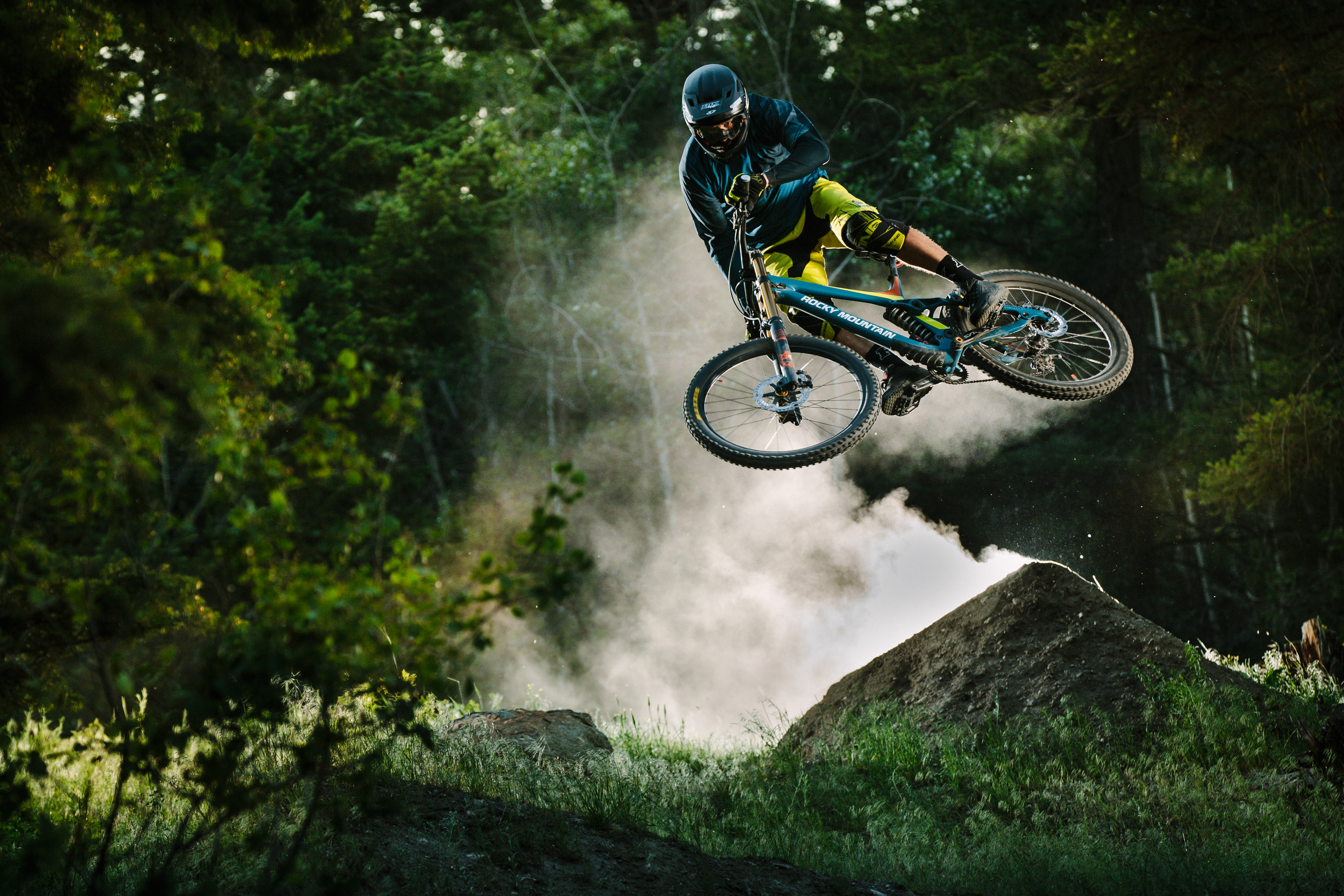
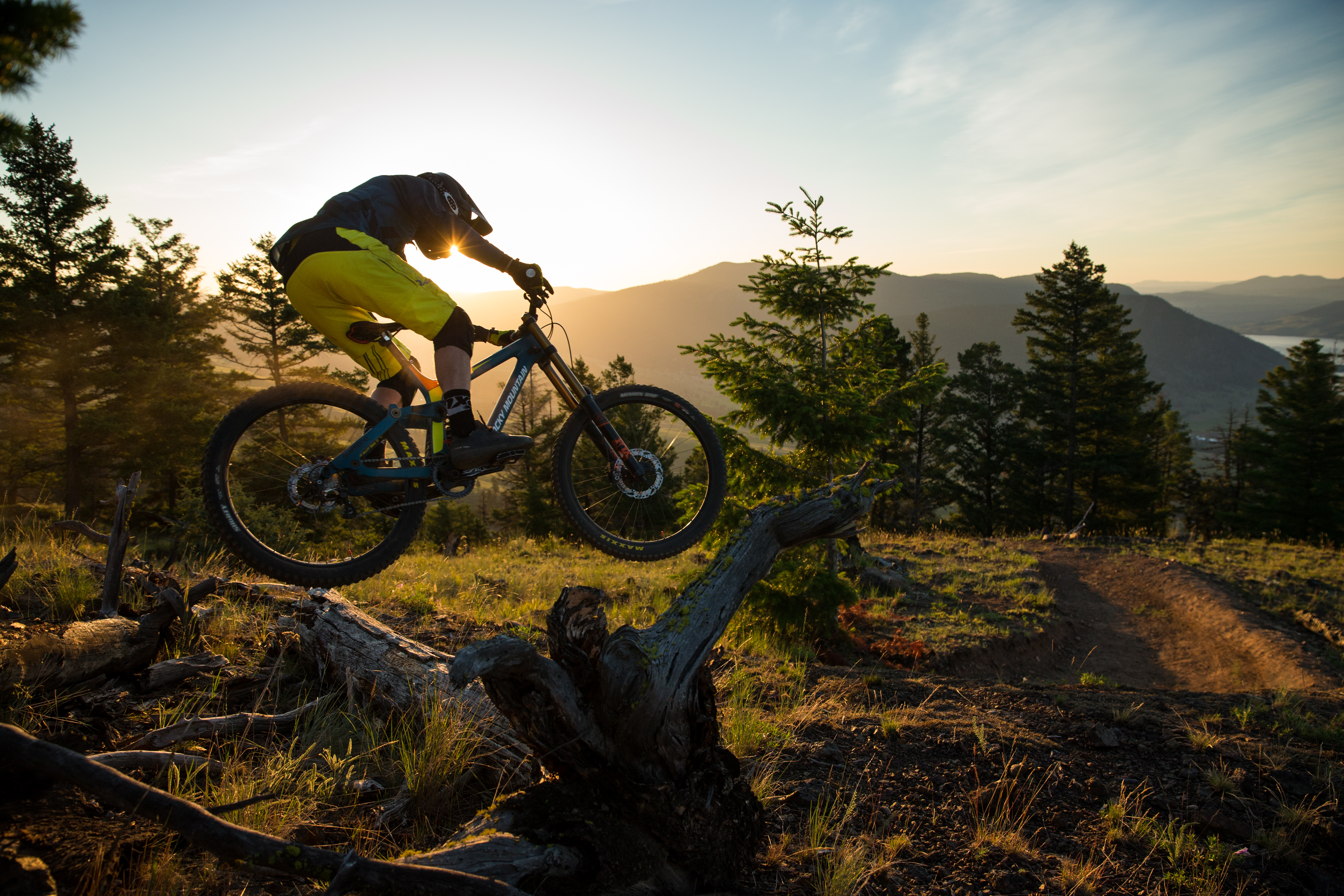
The post Introducing the 2016 Rocky Mountain Maiden appeared first on MTB-MAG.COM.

